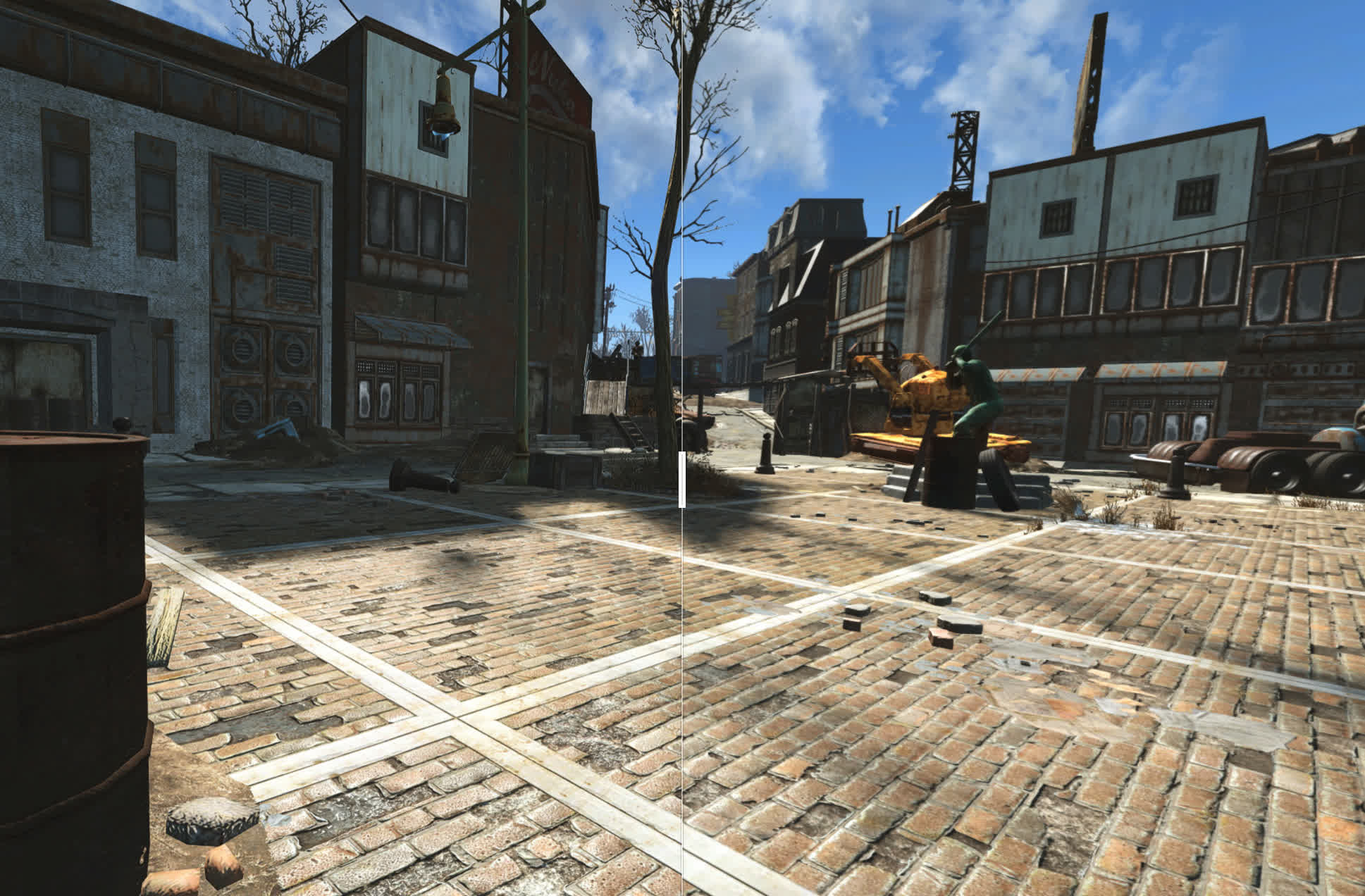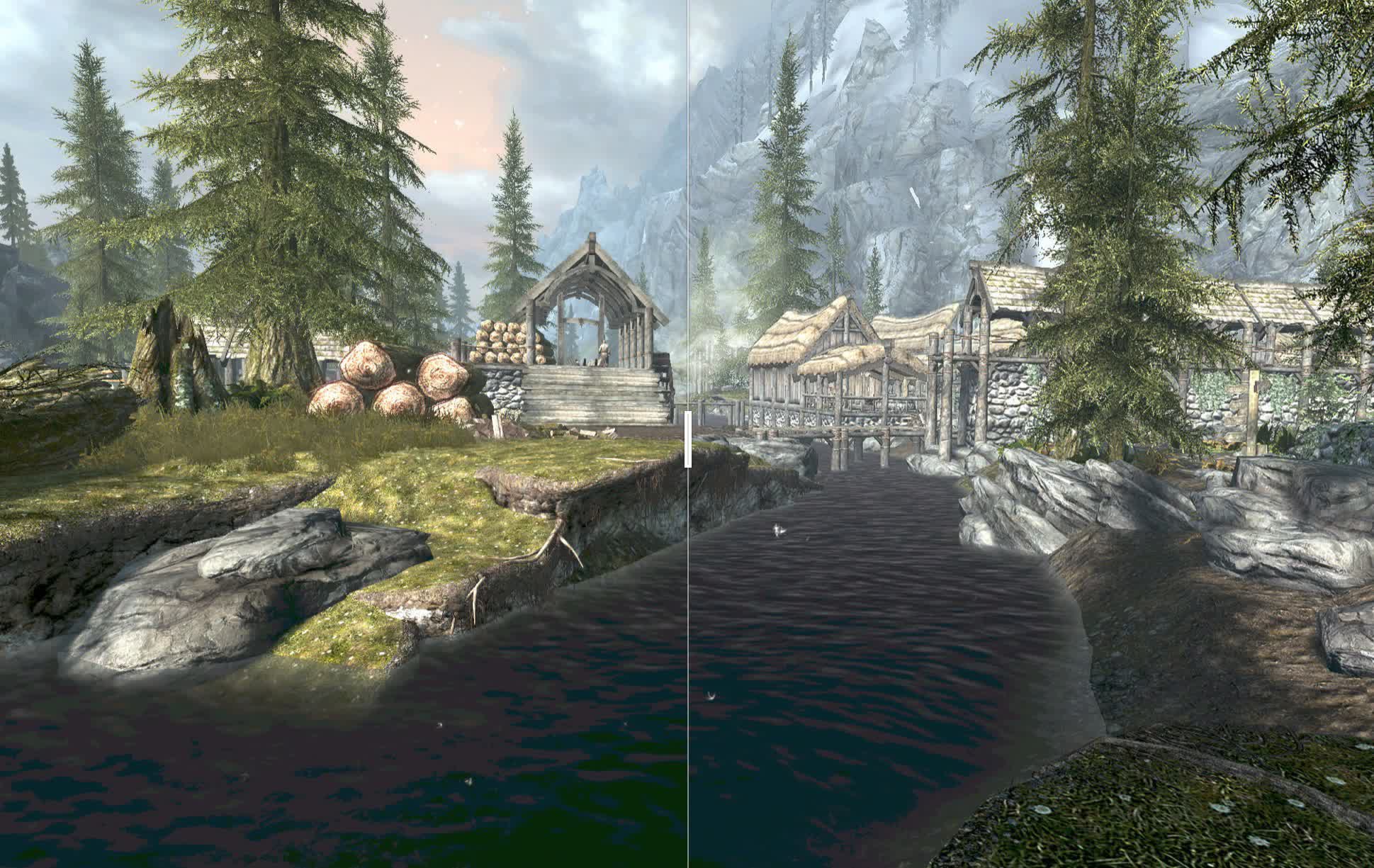In context: Virtual reality as a platform is still young and has many limits. One is graphical fidelity and frame rate. There is a delicate balancing act behind the scenes that provides the best clarity possible while maintaining a frame rate that will not induce vomiting. One way to reduce GPU workload and improve FPS is to use some form of supersampling like DLSS or FSR.

German modder Frydrych Holger has implemented AMD's FidelityFX Super Resolution (FSR) tech into StreamVR. It should help VR titles boost frame rates without compromising image quality. He has tested it with Skyrim VR and Fallout4 VR, and the results look pretty good. Holger explains the process on his GitHub page.
"The idea is that the game internally renders to a lower resolution, thus saving GPU time and reaching higher FPS, as long as it is not bottlenecked by the CPU. The resulting lower resolution render is then upscaled to the target resolution by FSR, with the aim of restoring some of the lost detail due to the lower resolution rendering. It does so in two steps - the first being the actual upscaling to the target resolution, where particular attention is paid to edges in the lower resolution picture. The second step is a sharpening step to counter some of the blur introduced by the upscaling."

Comparison between native (left) and FRS Ultra Quality (right).
AMD's FSR is open-source and platform-agnostic, so it should work with any GPU as long as the game uses Direct 3D 11. Holger does warn, however, that FSR is not capable of anti-aliasing, so your mileage may vary from game to game. That said, some tweaking can help. AMD says that when using FSR, use the highest-quality anti-aliasing setting a game offers. Holger advises enabling multisample anti-aliasing if it's available. Otherwise, use temporal anti-aliasing.
Sharpness and render scale can also be fiddled with in the mod's configuration file (openvr_mod.cfg). Holger says to experiment with these settings to find what looks best for any particular game and VR rig setup. You can grab the mod along with more detailed instructions on Holger's GitHub page. Also, be sure to check out the interactive Fallout 4 and Skyrim comparisons (pictured above).
Holger notes that the FSR mod does not work with Half-Life Alyx or Star Wars: Squadrons. These two games do not allow the replacement of the "openvr_dll.api file" [sic]. Of course, once the mod has had some time to circulate in the wild, more issues are bound to show up. Holger asks users to report games that don't work to him, presumably so he can make patches to the mod when necessary, provided there is a solution to whatever is causing it not to work.
https://www.techspot.com/news/90541-mod-adds-amd-fidelityfx-super-resolution-steamvr-games.html
